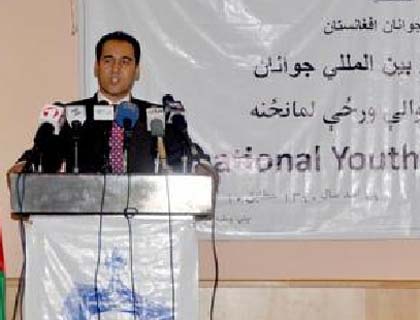KABUL - The National Youth Union on Wednesday asked the government to let it participate in the second Bonn conference scheduled to be held in Germany later this year. Speaking at a ceremony marking the International Youth Day, the union head Ghulam Daud Shayiq asked the government to invite the youth to take part in the Bonn meeting and in the upcoming traditional Loya Jirga to be held in Kabul on the proposed strategic cooperation agreement with the US.
He called for the agenda of the Jirga to be clear and known to every Afghan, alleging the union had been kept unaware of the purpose of the Bonn conference. Presidential advisor on border and tribal affairs, Shahzada Massoud, also insisted that the participation of youth in the jirga and the Bonn conference should be ensured. He said the government had ignored the youth in decision-making process.
The traditional jirga is due to be called into session to discuss the proposed strategic partnership with the US. A final decision in this regard will be taken by the national assembly. The Afghan government will share its plans with the international fraternity at the Bonn conference. Strengthening the Afghan government, signing different agreements with foreign countries and other issues will be discussed at the moot, according to the Ministry of Foreign Affairs.
On June 18, President Hamid Karzai warned not to take part in the moot if Afghans were invited to the event in groups. A decade back, he recalled, several Afghan factions had taken part in the first Bonn Conference that took place soon after the collapse of the Taliban regime in 2001.
This time around, Karzai said his administration would represent the entire country. In December 2001, a number of prominent Afghans met under the United Nations auspices in Germany to decide on a plan for governing the country.
As a result, the Afghan Interim Administration (AIA) - made up of 30 members, headed by a chairman - was inaugurated on December 22, 2001, with a six-month mandate to be followed by a two-year Afghan Transitional Administration (ATA), after which elections are to be held.
The issues concerning the youth in the first conference were joblessness, drug addiction and a lack of access to higher studies.

